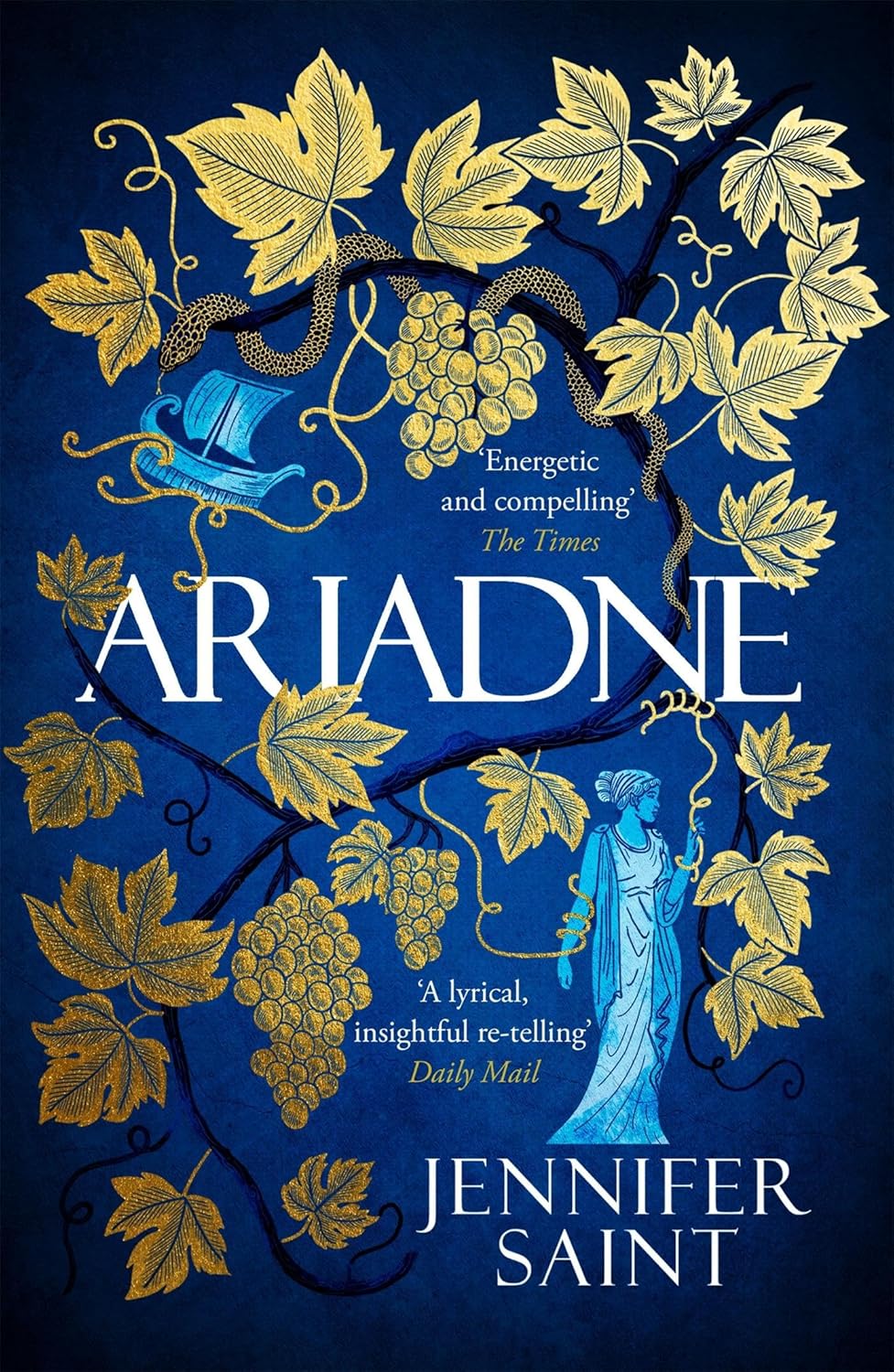
There are no reviews yet. Be the first one to write one.
Ariadne by Jennifer Saint offers a fresh retelling of the Greek myth centered on Ariadne, the daughter of King Minos and sister to the Minotaur. While most readers may know the tale of the Minotaur in the Labyrinth or the tragic story of Icarus, this novel shines a light on Ariadne’s often-overlooked journey, skillfully interwoven with these familiar myths. Saint carefully unearths Ariadne’s perspective, bringing depth and emotional complexity to a story often overshadowed by heroic feats.
Experiencing the myth of the Minotaur through Ariadne’s eyes adds a poignant layer to the tale, focusing less on horror and more on the inherent tragedy. Similarly, Saint’s portrayal of Theseus is refreshingly honest. Rather than the traditional heroic figure, he is presented as self-serving and treacherous—a portrayal truer to the flaws that surround many male figures in Greek mythology. After slaying the Minotaur (with help from a woman, it should be noted), Theseus abandons Ariadne’s sister and later leaves Ariadne herself stranded on the island of Naxos. Here, however, Ariadne’s story takes a hopeful turn as she meets Dionysus, the god of wine, who brings her a chance at happiness. Meanwhile, her sister remains with the disloyal Theseus, underscoring the differences in their fates.
This is where my main issue with the book lies. Marketed as a ‘feminist retelling’ of Ariadne's story, I found this label somewhat misleading. While the novel does focus on Ariadne and, at times, Phaedra, both sisters are largely defined by their relationships with the men around them. Instead of meaningful character growth, we watch the sisters endure tragedies often tied to male betrayal. Ariadne’s strongest statement of self-worth — “I would not let a man who knew the value of nothing make me doubt the value of myself” — is powerful in isolation, speaking to how women often internalise men’s perceptions. However, this reflection leads nowhere, as her story continues to revolve around her husband’s actions, even as he proves deceitful. Ultimately, this quote lacks substance within the broader narrative, as Ariadne’s focus remains tied to him despite his flaws.
In short, feminism and character development aside, Ariadne was an enjoyable retelling. My enjoyment may be influenced by a personal love of Greek myths, yet I still hoped for a stronger feminist retelling without women so helpless and oppressed by similar types of men. This critique isn’t a reflection on Saint’s writing, which is engaging and immersive; rather, it’s a comment on the book’s marketing, which led to some disappointment. It also highlights a recurring issue in popular myths: Medusa, seen only as a monster rather than the victim who became one; or the goddesses, depicted as jealous, without context for their rage. Ariadne, in this retelling, remains a character deceived and sidelined, left seemingly helpless.
For readers who enjoy Greek myths, I recommend this book but advise against expecting a strong portrayal of female agency or character development.
You must be logged in to submit a review.